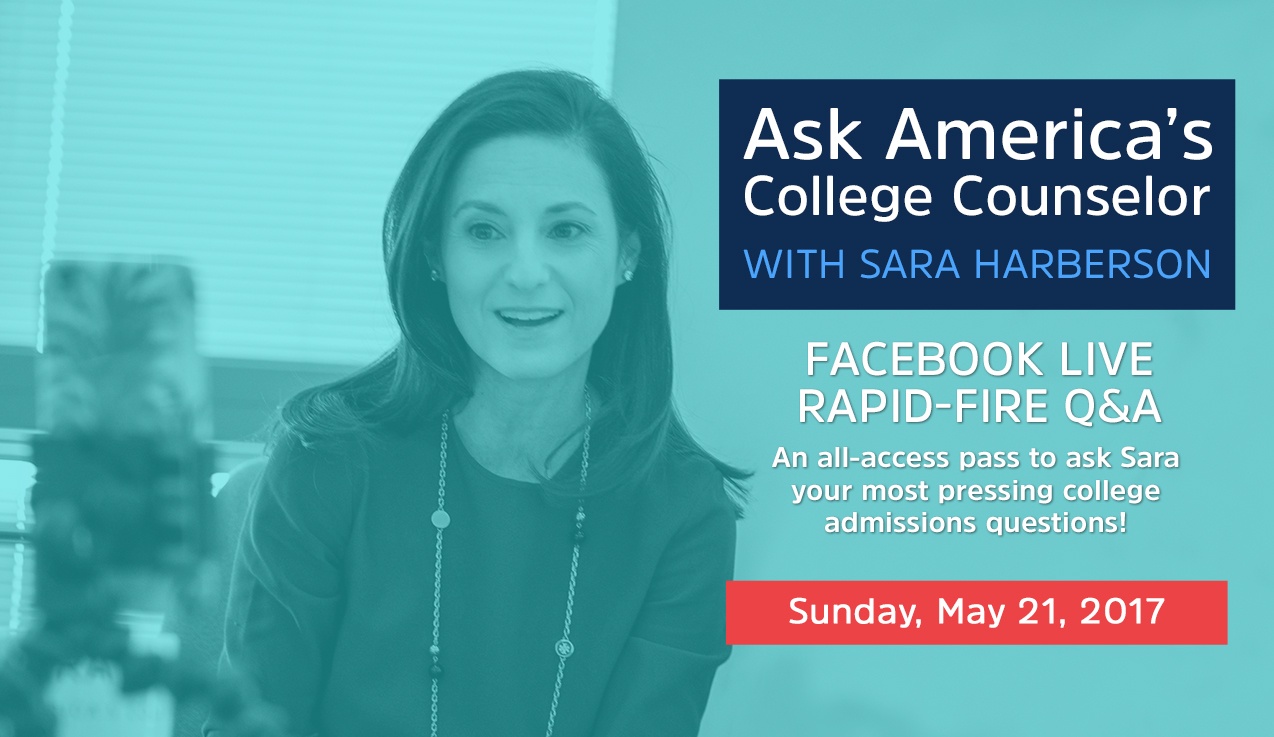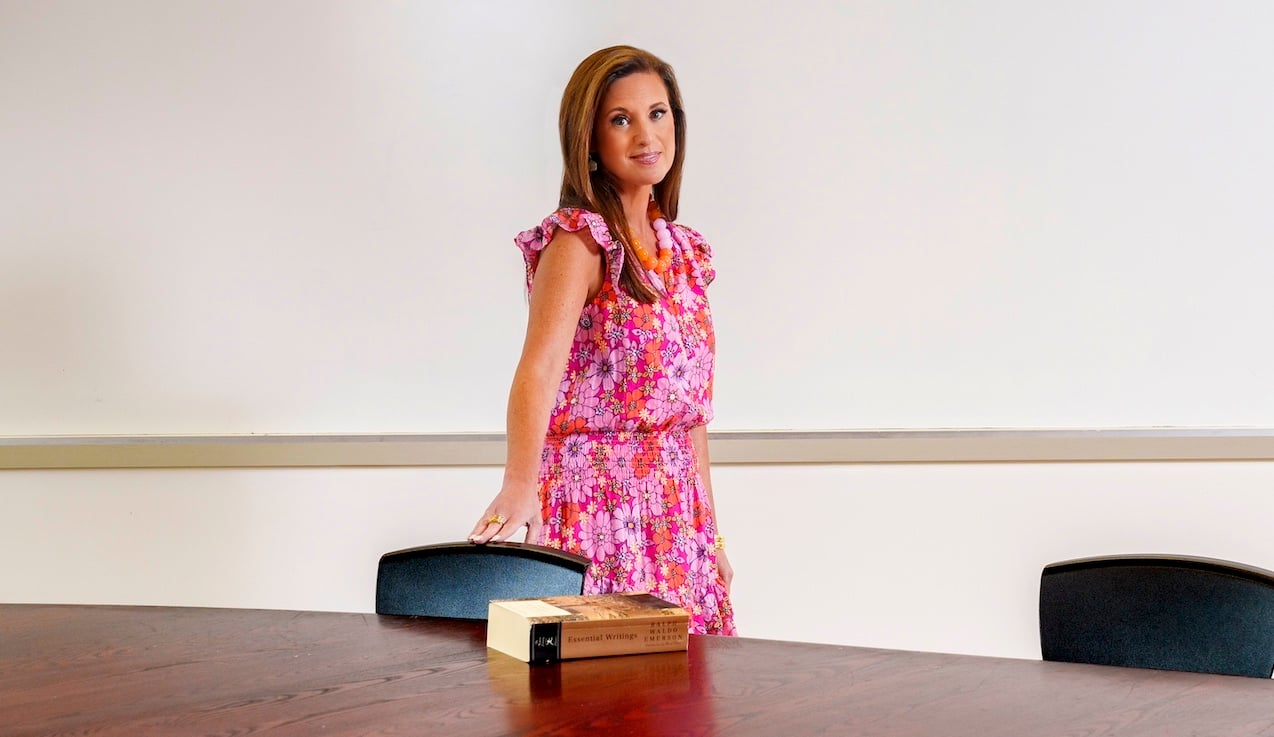In case you missed it, here's a recap of my recent Facebook Live Rapid-Fire Q&A!
My rapid-fire Facebook Live Q&A called Ask America's College Counselor is a great opportunity for parents of high school and middle school students—as well as students themselves—to ask me anything about the college admissions process. In my Facebook Live sessions, I answer all of your questions to keep you on the right track to get into college. If you didn't get to see my most recent live stream, you can watch the video below. And don't forget to scroll down to the BONUS section for even more of my expert advice!
QUESTIONS YOU'LL SEE ME ANSWER:
- How many colleges should you visit, and should you visit a college before you apply?
- If planning to go to a local college for the first couple of years for basic classes, what should be done to prepare? When should you start applying for scholarships?
- What are the best resources to prepare for AP exams without being able to take courses within your school?
- When is the best and most efficient time to visit colleges?
- How important are conduct grades to the admissions process? Are they even looked at?
- When applying to an engineering program, some schools prefer a physics SAT Subject Test. However, how should you approach this if your school curriculum will not prepare you for this?
- High school senior year or dual enrollment at a local college?
- When it comes to early decision, does a school saying they are "need blind" mean anything?
- Is it better for a student to take advanced level courses and get A's and B's or is it better to take regular level classes and get all A's?
- What are your thoughts on high school seniors taking September ACT or SAT exams this fall and getting the scores back in time for Early Decision or Early Action deadlines?
- How do colleges look at class standing when a student has taken all AP or Honors classes, but the school places kids that don't take Honors at a higher rank?
- I am still a bit confused on the opportunity to take an AP/Dual Credit class. The high school does not require the student to take the AP exam if the student chooses the Dual Credit option. While my student will take the AP exam in some subjects even though he might select the Dual Credit option, I don't think he will take all the AP exams. How do colleges look at that?
- What are colleges really looking for in the essay?
- Are AP classes considered as high as Honors? I recommend that my daughter only take 2 APs a year, the rest Honors, as she would most likely get too stressed. Will she be knocked down because of this?
- Do colleges care that some higher Honors and AP classes are electives?
- My daughter will be applying for a BFA or BA in dance for college. Would you recommend her listing her accomplishments outside of her arts high school, such as Joffery Ballet summer intensives and other audition summer intensives on the extracurricular part of the application? Will that help?
BONUS Q&A- BIG QUESTIONS THAT DIDN'T MAKE THE VIDEO
1. If a student is applying to a college with an impacted major, does applying undeclared improve the applicant's chance of admission?
The major or program listed on an application can greatly impact the outcome at universities with very specialized and competitive undergraduate programs. Undeclared or undecided can ease a student's concerns if they're not sure what they want to major, but it can also put them at a slight disadvantage if they don't articulate some academic leanings somewhere in the application. For elite colleges, especially, there's usually at least one essay found on the supplement that asks the student to elaborate on their intended major/program or academic interests.
2. ACT vs. SAT. How do you decide? Do certain colleges prefer one to the other?
No preference at all. I tell students to take a diagnostic ACT and a diagnostic SAT under normal testing conditions to get an accurate sense of the scores. Compare both scores. There are conversion tables to compare the two scores. I use the following one: http://blog.prepscholar.com/act-to-sat-conversion.
3. You've previously indicated that selective colleges are interested in a recommendation from a student's school counselor. Unfortunately, at a large high school, students have very little involvement/activity with the counseling office. Will it reflect poorly if there is not a letter from a school counselor?
No, this won't hurt a student's application. Colleges have different expectations for the counselor letter depending on the high school environment. The letter from the counselor at a large high school will usually be shorter and less detailed. Colleges understand this. That will make teacher recommendations more meaningful and weigh more in the process. So, make sure the student knows the teachers who will be writing recommendation letters; and make sure the teachers know the student really, really well.












